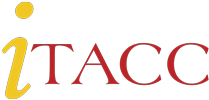Project Name
Alternative Dispute Resolution Initiative
Type of practice
Emerging practice (new, innovative and hold promise)
Areas of Emphasis
Formal and informal community supports
Quality Assurance and training in self-advocacy, leadership, and self-determination
Project/activity years
2021
2020
Population of focus
Everyone
Strategies Used
Outreach
Training
Supporting and Educating Communities
Interagency Collaboration and Coordination
Coordination with Related Councils, Committees, and Programs
Project Description
This grant is building capacity among NYS’s Community Dispute Resolution Centers (CDRCs). CDRCs are in every county, and court-funded community organizations available to any New Yorker. CDRCs work with various parties on resolving conflicts outside of the court, such as landlord disputes, separation agreements, neighbor disputes, among countless other issues, through mediation. In addition, the CDRCs offer conflict coaching for individuals, so that they can better respond to areas of conflict in their life.
Our grant has funded disability awareness training for CDRC mediators, conflict coaches, and staff, to ensure services are accessible and highly tailored for anyone seeking mediation and conflict resolution support. In addition, the Office for Alternative Dispute Resolution at the Unified Court System (UCS) has done targeted outreach to the IDD community throughout the state to raise awareness about the free or low-cost services CDRCs provide.
Impact (or impact-to-date) of the project/activity for people with ID/DD and their families
We have several success stories of people who have learned about and subsequently utilized mediation and conflict coaching services at their CDRC. These successes have been in various types of conflict, but on the whole demonstrate an increased awareness and utilization by the IDD community. CDRC staff have also taken advantage of ongoing training activities to build their own capacity, as UCS continues to strengthen the skills of the CDRC network staff.
In addition, our Alternative Dispute Resolution grant discovered an opportune connection with our previously-funded Supported Decision-making grant. Quite a few CDRC mediators have been trained as SDM facilitators and continue to support Decision-makers to establish Supported Decision-making Agreements. This intersection has led to further conversations about how UCS can collaborate on alternatives to guardianship efforts.
Stories
Story perspective
Family of a person with ID/DD
What were things like BEFORE you/your family/partner/community participated in the project/activity?
Prior to receiving mediation support between a parent and their child’s school district, the parent was very upset because the school had reduced the student’s services and the parent did not understand why. The parent insisted the child’s services be restored to the full amount as had been the way previously.
What are things like AFTER you/family/partner/community participated in the project/activity?
Because CDRC staff were trained to support people with IDD and their family members, they were able to mediate between the parent and the school. The school explained that while the child had been receiving much more extensive services for years, the student had shown great improvement and the school felt a less restrictive environment would be beneficial for the student. Mediation enabled the school and parent to come to an agreement that this would be a trial period, to be reassessed after an agreed upon period of time. The two parties will meet after this trial period, and determine whether to continue on the new path, or to restore services as was previously the case. The parent was pleased about the outcome, despite not getting what she’d initially intended, and the school felt it was still able to provide the best type of support for the child.
What was most beneficial to you/family/partner/community from participating in this project or practice?
It was helpful to have a neutral third party to facilitate between two parties that felt very strongly about their position. Especially in cases like this, both parties felt their perspectives were ‘right’, and in the best interest of the student. The mediation model supports more constructive, solution-oriented discussion.
The role of the DD Council in achieving positive outcomes through this project.
The NYS DDPC had been cultivating a relationship with the UCS for several years before settling on the Alternative Dispute Resolution initiative. Two DDPC staff had even attended conflict coaching and mediation training to understand the core concepts of the trainings, and to determine if they aligned with the mission of the DDPC. It became clear that the CDRC approach was complementary to the DDPC’s mission, and could be strengthened by specific training on IDD. The Council Membership was in full support of this project. As the project has been underway since 2020, additional opportunities have become apparent as ways the DDPC can partner with the Courts to further efforts around alternatives to guardianship and supported decision-making. The Council is currently exploring ways to put some of these intersections into action.
Contact Information
Name: Kimberly Berg
Email: kimberly.berg@ddpc.ny.gov
Phone: (518) 486-7505
Council location: New York
Website: www.ddpc.ny.gov
